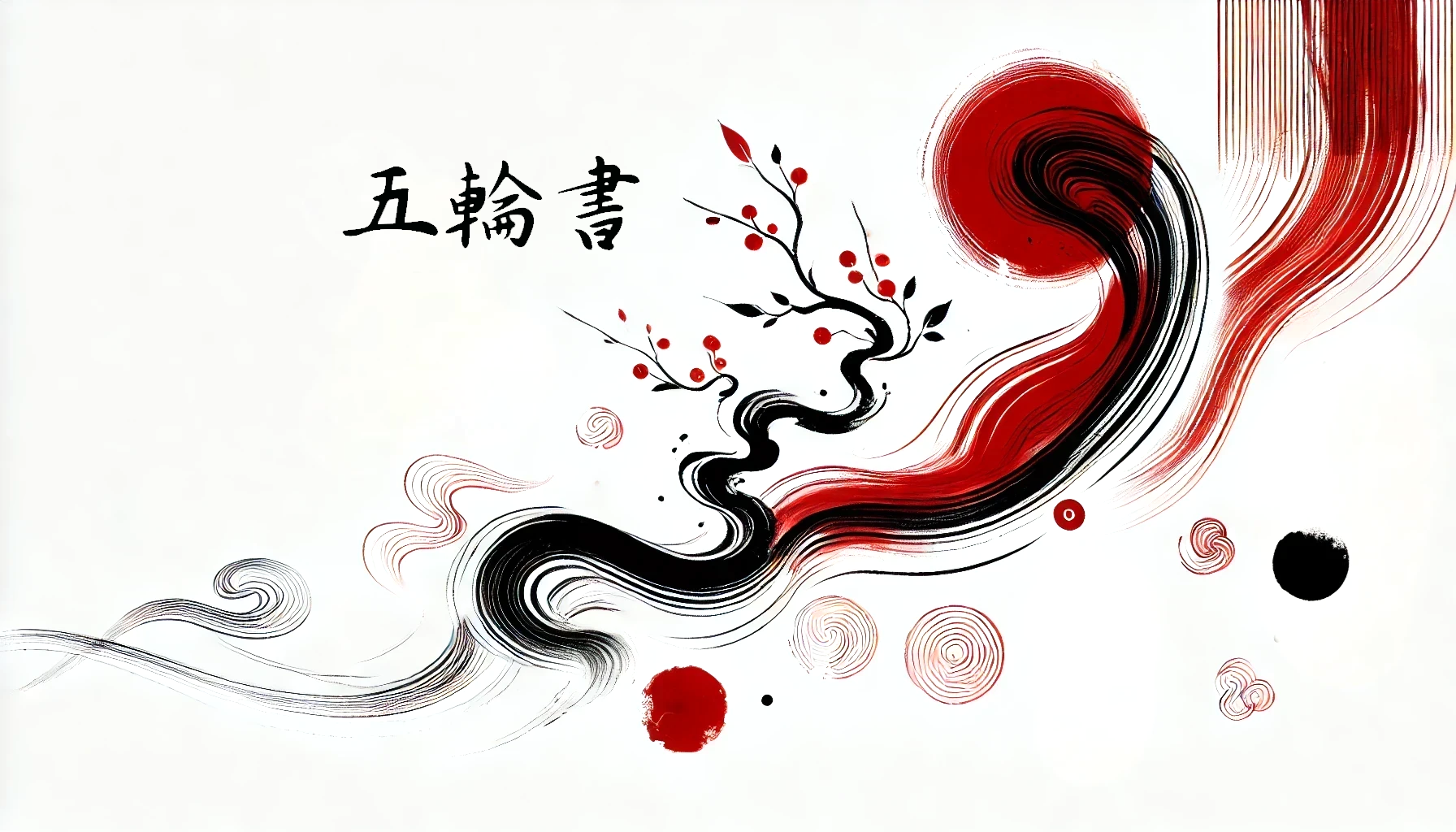“Do nothing which is of no use.” – Miyamoto Musashi
The Digital Samurai
Ancient strategy for a restless, wired age
Notifications buzz like arrows. Deadlines land like duels. The battlefield isn’t a dojo anymore it’s your inbox, your codebase, your creative sprint. And Musashi still has the playbook.
“Fixation is the way to death. Fluidity is the way to life.” – Miyamoto Musashi
In 1645, Miyamoto Musashi wrote The Book of Five Rings a samurai’s blueprint for mastery. Four centuries later, his voice still cuts through like a blade. Not because we wield swords, but because we battle distractions, deadlines, and shifting landscapes with the same demand: strategy.
Today’s digital professionals aren’t warriors with armor. They’re strategists in hoodies, code slingers, product architects, brand builders. And Musashi’s five books Earth, Water, Fire, Wind, Void read less like dusty history and more like a playbook for anyone working in 2023.
Embrace the Way of Strategy
The through-line of mastery
“When you attain the Way of strategy, there will not be one thing you cannot see.” – Miyamoto Musashi
Strategy isn’t a tactic. It’s the operating system. Musashi’s core idea was simple: tools matter less than perspective. Master the principle and the tool follows.
For today’s pro, that means going beyond “what’s trending on LinkedIn.” It’s about seeing the whole chessboard: the product, the people, the timing, the cultural current. Those who zoom out far enough can move with intent when others scramble.
Strategy isn’t a plan it’s a lens.
The Book of Earth
Build your ground game
“Do nothing which is of no use.” –Miyamoto Musashi
Earth is foundation. Solid, unmoving. Musashi taught that without basics, skill collapses.
For digital creatives, Earth is clean fundamentals: knowing your codebase, your craft, your palette. The unglamorous drills. Think of it like mastering scales before jazz improvisation, or building muscle memory before choreography.
The paradox? Fundamentals free you. The stronger your foundation, the bolder your improvisation.

The Book of Water
Adaptability in motion
“Fixation is the way to death. Fluidity is the way to life.” – Miyamoto Musashi
Water is the original strategist. It bends, flows, reshapes. Drop it into a riverbed and it maps its own path, no permission needed.
That’s today’s tech world: features changing mid-sprint, user needs evolving, markets tilting. Rigid systems sink. Fluid ones adapt.
And adaptability isn’t just tactical it’s aesthetic. Like silk folding in light, or a gallery installation shifting as you move. Professionals who pivot without panic, who surf chaos with calm, don’t just survive. They lead.

The Book of Fire
Pressure makes clarity
“You cannot learn the sea from the shore; set sail and see where your journey takes you.” – Miyamoto Musashi
Fire is heat, conflict, the trial by doing. Musashi believed only direct battle taught truth.
For us? Fire is the bug that appears on launch night, the pitch that tanks, the sprint that nearly breaks you. Classroom lessons fade. Real-world collisions carve you sharp.
Fire demands engagement, not theory. Step into the blaze. You’ll leave scorched but stronger.
The Wind Book
The Breath of Versatility
“You should not have a favorite weapon. To become over-familiar with one is as much a fault as not knowing it.” – Miyamoto Musashi
Wind is movement across styles. Musashi warned against loyalty to one form. Too much attachment blinds you.
For professionals, that’s being tool-agnostic. Code in multiple languages. Sketch with pen and with Figma. Present to the boardroom and brainstorm with interns. Versatility is currency.
Those who learn across silos see opportunities others miss.

The Book of Void
Embracing the Unknown
“By knowing things that exist, you can know that which does not exist.” – Miyamoto Musashi
Void is Musashi’s most cryptic lesson. It’s the unknown, the empty, the space where innovation happens.
Translated: the best ideas come from subtraction, not addition. Clear the noise, and the signal appears. Void isn’t mystical. It’s focus. The clarity you get when you close your tabs, silence your pings, and let your brain breathe.
Void is where the future sneaks in.
Topic-Specific Reads
Sharp minds, sharper strategy
- Cal Newport — Deep Work : “Depth beats distraction every time.”
- Clifford Stoll— The Cuckoo’s Egg : “Even the smallest anomaly can reveal the biggest truths.”
- James Clear — Atomic Habits : “Tiny shifts compound into seismic results.”
- Johann Hari’s— Stolen Focus : “Attention is the new currency and we’re bankrupting ourselves.”
- Tristan Harris — How Technology Hijacks People’s Minds : “Design shapes behavior often without permission.”
Final Thought
The blade still cuts
The samurai is long gone. But Musashi’s playbook feels made for us. The digital world is faster, louder, and endlessly distracting. Yet the call is the same: master your ground, adapt like water, engage the fire, move with wind, and embrace the void.
Because excellence isn’t ancient. It’s timeless.
The Way of Strategy is a commitment to a lifetime of learning and it encompasses five key aspects:
- Earth: The foundation of discipline, understanding of the fundamentals, the mastery of tools, and flexibility.
- Water: The ability to adapt and remain calm in the face of change.
- Fire: The intensity of direct engagement and proactive initiative.
- Wind: The importance of versatility, understanding diverse approaches, the speed of learning and adapting .
- Void: Achieving clarity and focus solely on the objective without distraction.
By integrating these elements, professionals can develop a holistic and strategic approach to their work, achieving true mastery and consistent success in their field.
References
- Miyamoto Musashi (1645): The Book of Five Rings
- Newport, Cal (2016): Deep Work
- Hari, Johann (2022): Stolen Focus
- Clear, James (2018): Atomic Habits
- Harris, Tristan (2016): How Technology Hijacks People’s Minds
- Stoll, Clifford (1989):The Cuckoo’s Egg





